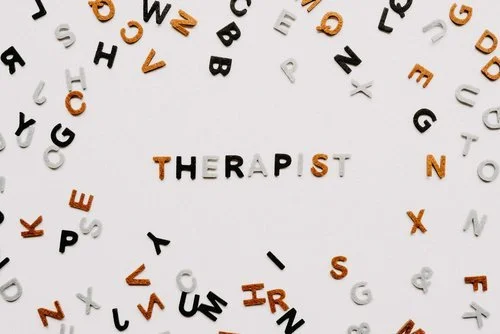
OCD Therapy
Becoming free from the endless thoughts of doubt
Are you experiencing intrusive thoughts that feel like an endless cycle?
Does it feel like your mind is playing tricks on you, making you doubt the actions you took (or didn’t take) everyday?
Are you finding yourself in rigid patterns of routines that feel necessary to complete to avoid something bad from happening?
Are you feeling distressed, incomplete, or “just not so” from the thoughts of doubt and worry?
What is OCD?
Obsessive Compulsive Disorder is a mental health concern, consisting of obsessions (thoughts) and compulsions (behaviours) that interrupt the person’s ability to live a fulfilling life. It is estimated that 1-2% of people will be diagnosed with OCD in their lifetime. Symptoms typically start in childhood and persist into adulthood. Without proper treatment, symptoms can worsen, sometimes causing severe impairment in the person’s functioning.
What are Obsessions?
Obsessions are recurrent and unwanted thoughts, urges or intrusive images. They often cause significant anxiety, distress or disgust to the person experiencing them. People often describe obsessions as causing pathological doubt or sensory incompleteness, in other words, feeling ‘just not so’. These thoughts differ from simple real life worries, such as, ‘did I turn off the stove?’, such that they happen with much more frequency and intensity and are repetitive in nature.
Obsessions fall into categorical themes. Some of the more common themes include contamination (excessive worry about getting or spreading illness, disease, or germs), Harm to Self or Others (excessive worry that the person may act on an unwanted impulse, make a mistake, or forget to do something that will ultimately hurt themselves or someone else), Symmetry / Exactness (excessive thoughts about balance or evenness and thinking something bad may happen if such is not met), Sexual (excessive intrusive thoughts or images of a sexual nature, either violent or non-violent in nature) and Scrupulosity/Religious (excessive worry about behaving or being “right” or “good” or excessive worry about offending God or being moral).
What are Compulsions?
Due to the uncomfortable feelings that arise with obsessions, some people attempt to ignore, suppress or neutralize them with some other thought or action. If this thought or action is repetitive and the urge to use them is strong, then it may be considered a ‘compulsion’. The person often feels driven to engage in the compulsion as the only means to get rid of the uncomfortable experience of the obsessions. Depending on the obsession, some people believe the compulsion can prevent a dreaded event. Compulsions are usually performed in a rule-bound fashion, such that there is a pattern or certain number of times the ritual needs to be completed. The problem with compulsions is that they only reduce the distress temporarily and usually becomes less effective overtime, which leads the person to spend more time engaging in the compulsion or supplementing with additional compulsions.
Compulsions fall in to categorical themes as well. Some of these themes include Washing and Cleaning (e.g. excessive and ritualized hand washing, showering or toilet routines), Checking (e.g. excessive checking of doors/locks, their belongings, asking reassurance questions), Repeating/Redoing (e.g. rereading or rewriting, repeating behaviours such as closing doors or getting in/out of chairs a certain number of times or until the person feels ‘just so’), Hoarding/Saving (excessively keeping items that seem to have no value or purpose).
What does OCD Therapy look like?
Treatment for OCD is a specialized area, and clinicians require high levels of supervised practice to achieve good results. Gold standard treatment is Cognitive Behaviour Therapy with Exposure and Response Prevention - CBT with E/RP. Typically, clients stay in therapy for 12 to 18 sessions. For children and youth, it is important that parent(s) are included in many aspects of the treatment as well, to ensure consistency of managing challenges between sessions.
OCD Therapy is comprised of different steps, including externalizing the thoughts, mapping out the obsessions/compulsions, creating ‘fear ladders’ or ‘hierarchies’ and exposing the person to the feared thoughts (exposure). They also work to withhold their typical response to their feelings of distress or incompleteness (response prevention). E/RP is done right in the therapy session with your therapist, and home practice is assigned between sessions to carry on the work.
OCD keeps the person stuck in an endless cycle of doubt and worry: learn to be at peace with your thoughts, and live a life of ease.
Start OCD Therapy with us Today!
Check out these resources:
-

Signs your therapist may not be trained in OCD
Many therapists claim to treat OCD, however, it is a highly specialized area that requires specialized training. What ‘red flags’ should you look for?
-

Facing your Worst Fears: Exposure Therapy
Exposure therapy is an evidence-based treatment for a variety of mental health concerns. Check out some of the ways it can help!
-

Obsessions and Compulsions
OCD is better understood today than ever before. Here is a general overview of the condition and treatment that can help.

